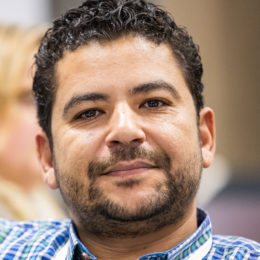Forest trees among the terrestrial plants are well known to live in close association with several microbial populations. In particular, all forest trees form beneficial associations with microorganisms such as fungi and bacteria.
El-Sayed Ramadan El-Sayed Ali
A fungal endophyte spends a part or whole lifecycle inside tissues of its host plant, typically causing no apparent symptoms of disease. These microorganisms (fungi) represent an untapped pool of valuable bioactive compounds. Moreover, they are more active than their free counterparts found in other sources such as soil and water; so, they are recognized as sources of novel bioactive compounds with potential application in agriculture, medicine, and food industry. The forests of Poland are very extensive and their biodiversity is vast. Furthermore, these plants and related endophytic fungi have been underrepresented in research efforts on the production of bioactive compounds thus far and may harbor a wealth of hitherto unknown valuable compounds. Indeed, the wide biodiversity of the yet unexplored fungal populations associated with these plants can be an infinite source of a wide range of bioactive compounds. Thus, we aim to unlock the potentiality of these microorganisms through the BioExplor project which target main goals of:
- Search for new carotenoids and other biopigments.
- Exploiting agro-industrial wastes for an efficient production.
- Harnessing nanotechnology to improve their properties .
- Discovery of novel antimicrobial compounds.
Basically, natural pigments consist of a wide array of bioactive compounds that are extensively used in industrial sectors, as food colorants, dietary supplements, pharmaceuticals, cosmetics, aquaculture and poultry feed. Recently, the discovery of new sources of natural pigments has increased magnificently, mainly due to the toxic effects caused by synthetic colors used in many industries. The European Union, US-FDA, and WHO directed compulsory warnings on children’s food labeling and recommended the limited acceptable daily consumption levels of some colorings. Moreover, the approval by the EU in 2000 for the use of filamentous fungi as food colorants will open up a new era for the use of fungi as biopigments producers. So, this project aims to isolate and screen fungal endophytes associated with trees of the Mokrzański forest for their producing ability while developing a cost-effective fermentation process. Moreover, the cost of the overall process for production of biopigments can be significantly reduced by utilizing agro-industrials wastes as low-cost substrates, thereby solving the problems of safe disposal and pollution avoidance to the environment. So, all the available agro-industrial wastes and side streams in Poland will be tried and utilized for an effective production process. Moreover, the produced biopigment will be, for the first time, exploited in nanotechnology to improve its properties by testing a novel technique; conjugation with biocompatible metal nanoparticles.
In another connection, all the isolated fungal endophytes will be screened for their capability to produce antimicrobial agents. Currently, the search for antimicrobial compounds has emerged as one of the most promising and ambitious developments in science, especially after the emergence of the pandemic COVID-19. As such, there is a continuous need for new antimicrobials due to the emergence of multi-drug resistant microbes. These resistant microbes are potential threats to humanity with serious consequences for both public and animal health, and welfare. In this regard, the BioExplor project aims to identify and unlock the untapped potential of the isolated endophytic fungi, as a source of new antibacterial and antifungal agents. Bio-guided approaches form the basis of a suite of technologies that researchers around the world are seeking to develop in order to unmet clinical needs. Indeed, the potential utilization of niche microorganisms in forests of Poland for obtaining natural pigments and new antimicrobials would be of great scientific interest and will open the door for exploration of the yet untapped nature of these forests.
Project details
Project title: Unlocking Bioactivity of Forest Plants Associated Mycobiome as Sources of Novel Carotenoids and other BioPigments: Intensifying their Potential using Nanotechnology
Principal Investigator: dr El-Sayed Ramadan El-Sayed Ali
Host institution: Wrocław University of Environmental and Life Sciences
Project duration: 01.09.2022 – 31.08.2024
Project’s website: www.bioexplor.eu

